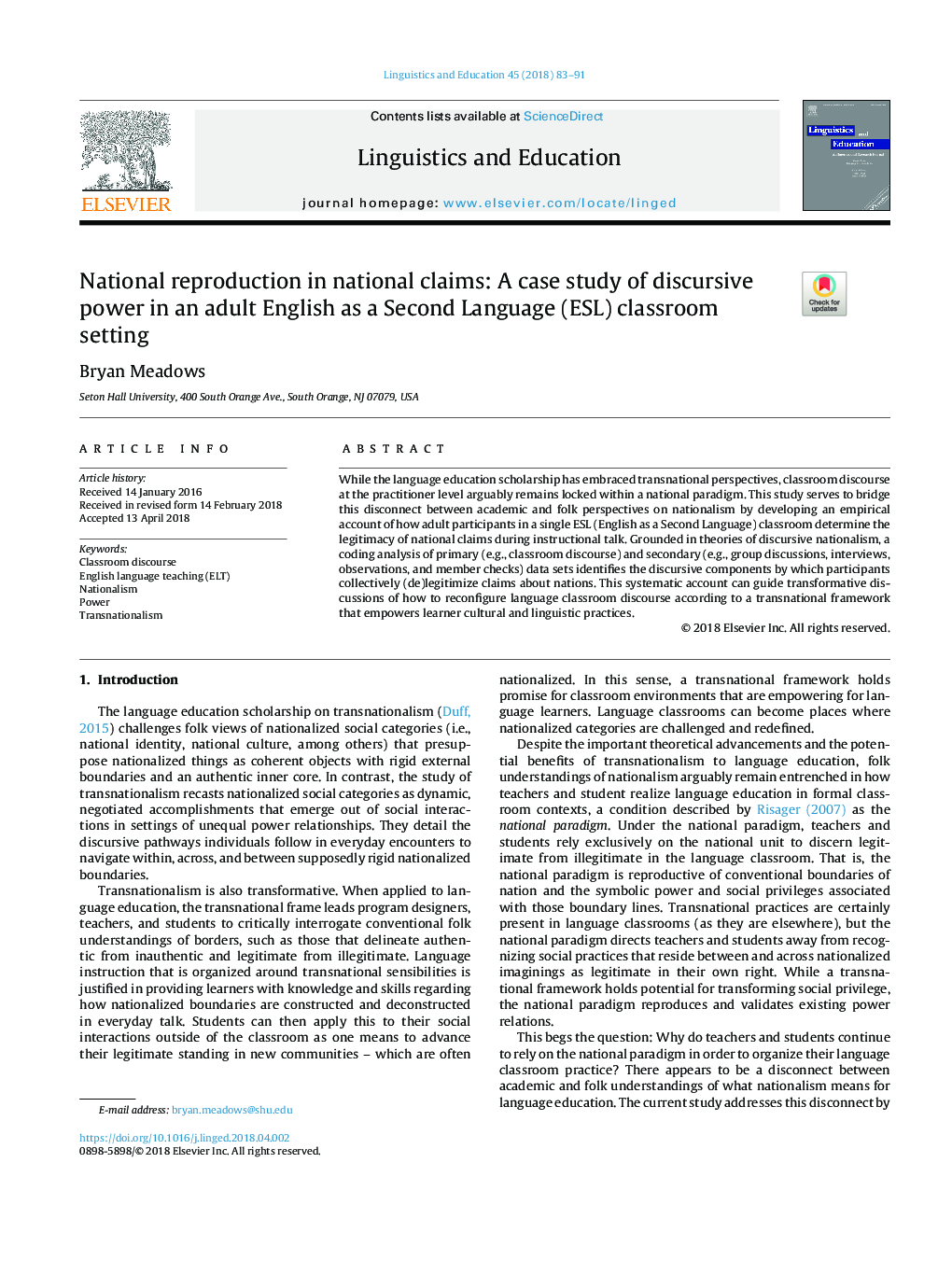| Article ID | Journal | Published Year | Pages | File Type |
|---|---|---|---|---|
| 6845910 | Linguistics and Education | 2018 | 9 Pages |
Abstract
While the language education scholarship has embraced transnational perspectives, classroom discourse at the practitioner level arguably remains locked within a national paradigm. This study serves to bridge this disconnect between academic and folk perspectives on nationalism by developing an empirical account of how adult participants in a single ESL (English as a Second Language) classroom determine the legitimacy of national claims during instructional talk. Grounded in theories of discursive nationalism, a coding analysis of primary (e.g., classroom discourse) and secondary (e.g., group discussions, interviews, observations, and member checks) data sets identifies the discursive components by which participants collectively (de)legitimize claims about nations. This systematic account can guide transformative discussions of how to reconfigure language classroom discourse according to a transnational framework that empowers learner cultural and linguistic practices.
Related Topics
Social Sciences and Humanities
Arts and Humanities
Language and Linguistics
Authors
Bryan Meadows,
